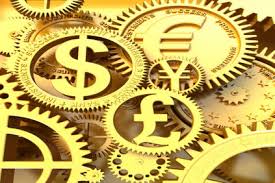|
Foreign capital flow to
Economists all have affirmed that

Ong Seng Yeow, a senior executive of the Malaysian
Maybank Kim Eng (MBKE), said during his working visit to
Meanwhile, the senior executive, in his first visit to
MBKE cited the figures to show the high growth rate of
the market. In 2013, the value of the foreign investment portfolios increased
by $3.3 billion to $12 billion. The capitalization value of ETFs increased by
24.3 percent to $375.8 million in the same year, and had reached $479.8
million by the end of February 2014.
Answering the questions of the local press on the
sideline of a recent workshop, the expert from MBKE said he believes
Three reasons have been cited to explain the forecast:
the cheap Vietnamese stocks, the improved macro economy and the information
about
The government’s efforts to restructure the national
economy in 2011 and 2012 have begun shown their active effects. The
macroeconomic indexes have been stable, while the inflation has been
successfully curbed, the local currency value has been stabilized and the
foreign currency reserves have increased.
Meanwhile, the changes in the policies are believed to
encourage investors to pour their money into
After the global finance crisis, a lot of foreign
investment funds realized that it would be very risky to “pour money into one
basket.” This has prompted them to make investments in groups of countries or
in a region.
Dragon Capital, for example, which has been very
familiar with the Vietnamese market, has decided to inject money in many
other countries, including Thailand, Cambodia, Laos, Bangladesh, possibly in
Myanmar the Philippines in the time to come.
Dominic Scriven, CEO of Dragon Capital, said on Dau tu
that 10 years ago, investors mostly talked about
Of the ASEAN countries, according to Ong Seng Yeow,
However, while affirming that
DNSG
|
Chủ Nhật, 16 tháng 3, 2014
Đăng ký:
Đăng Nhận xét (Atom)
Không có nhận xét nào:
Đăng nhận xét